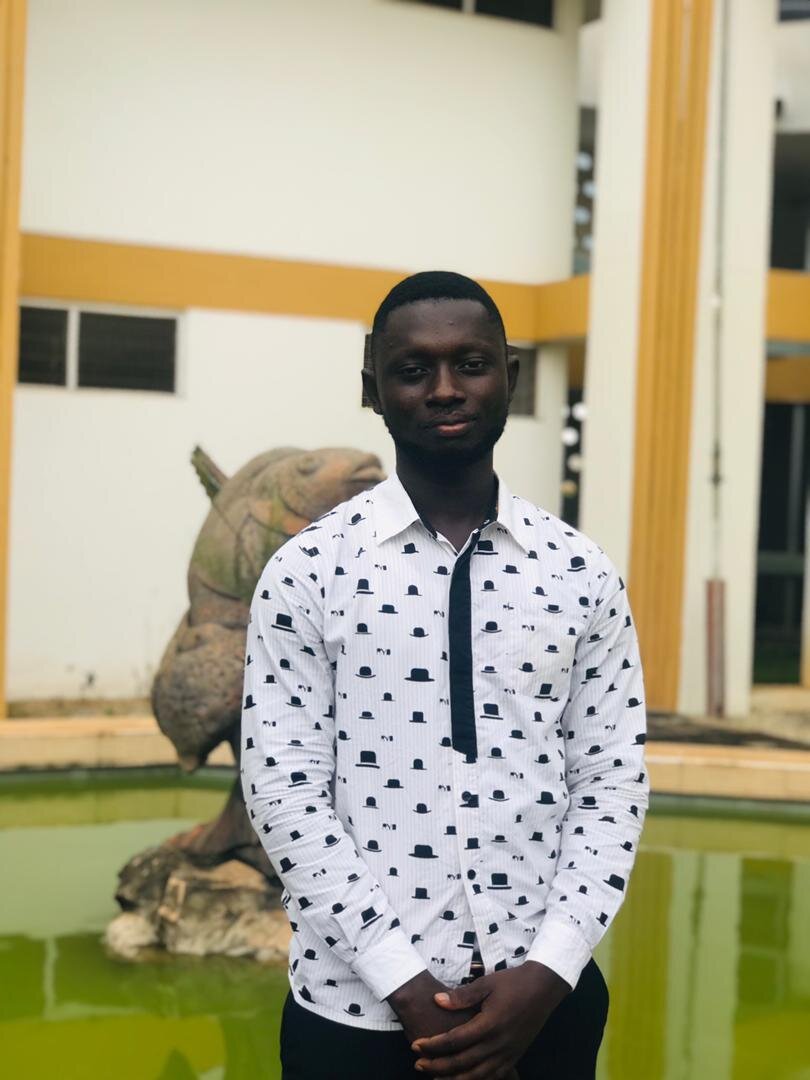Wonder Sekey, Millennium Oceans Prize Winner - 2021
“Fisheries are immensely important to the Ghanaian socio economic ecosystem. Around 50% of my local population depends on fisheries in one way or the other, and nearly 60% of Ghana’s protein source comes from fish. So to restore these mangroves is to restore livelihoods. It is to safeguard communities. It is a patriotic act both for this generation and the next.”
Meet Wonder Sekey and his team - Winners of the 2021 Millennium Oceans Prize. The Millennium Oceans prize is presented annually by the Remmer Family Foundation and MCN, to youth activists around the world advancing SDG 14. Applicants propose concrete Social Impact campaigns that promise to advance freshwater and marine conservation in their local communities, with winners receiving a 5,000$ grant and mentorship as they work to implement their projects. This year’s Millennium Oceans prize attracted applicants from over 45 countries and 138 campuses around the world.
Wonder is a natural resource student from Ghana - majoring in Fisheries & Watershed Management. His project is aimed at restoring the depleted fish stocks and mangroves of Ghana’s River Densu Delta.
For centuries River Densu has been an important economic and cultural site for Ghanaians - supplying half of the water used by the capital city of Accra and providing livelihoods to thousands of farmers and fishermen. However, as a result of pollution, over-exploitation, unsustainable fishing practices, and deforestation - the river has now lost most of its glory. Once boasting several thousands of mangroves and vast numbers of fish, the delta now has only 16 mangrove trees standing, and most of its fish species have been wiped out - fundamentally affecting the core of Ghana’s marine based economy. These mangroves are vitally important for the delta - acting as coastal bulwarks against violent storms and also helping to mitigate climate change by sequestering carbon dioxide. They also function as nurseries, supporting diverse species such as fishes, crustaceans, and sea turtles. Their sprawling roots provide small fish refuge from predators and also support aquatic life due to their high oxygen content.
"To restore these mangroves is to restore livelihoods. It is to safeguard communities. It is a patriotic act both for this generation and the next"
Wonder and his team then crafted their collaborative project “Saving our Mangroves” a three-pronged approach to restoring the Densu River Delta;
First by carrying out community sensitization exercises to educate and train Ghanaian fishermen and the wider Densu community on the importance of mangroves and the role they play in fish assemblage, stabilization and stock improvement.
Second by planting 8000 mangrove seedlings in the Densu intertidal zone so as to help restore the mangrove forest cover and provide breeding and nursing grounds for fishes to replenish.
Lastly by creating alternative livelihood sources for young locals by upskilling and teaching hard skills
For Wonder - nothing would have been possible without his strong, committed teammates.“This is not just a ‘team’ - it is a shared community of love and support - composed of students sharing similar interests in nature and conservation, similar passions and similar motivations. This for us is more than just a project, it's a shared aspiration to use our skills and knowledge to make our country better.”
“Winning the Oceans prize is a dream come true for us. We were so eager - always checking our emails, breathlessly waiting for updates - and when it came we were over the moon with excitement. Thank you MCN and the Remmer family for making everything possible - and congratulations to all other applicants for your boldness and innovation.”


